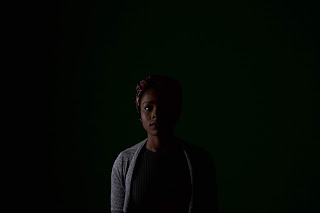The main reason why Sedar Senghor had to write the poem “Black Woman” was to challenge the Whitemen’s view of the African people, especially the women. To the white, there is nothing worthy of praise in an African woman. Therefore, to counter this opinion, the poem describes the African woman as exceedingly beautiful. Using rich imagery, the poet describes the beautiful skin colour, lovely shape, and even as little detail as the gentleness of the hand was not left unmentioned.
Africa is womanly
Beyond the physical description of the beauty of the African women in the poem, Senghor tries to paint a picture of the continent of Africa as a woman. Looking at it from the lens of colonial rule, an experience that still tells on the psyche of an average African woman today, Senghor sees Africa as a land that has been stripped naked by the Whitemen through the exploitation of human and natural resources. By praising the African land despite her abuse by the white men, the poet seems to believe that Africa is unbreakable. Africa is “clothed with your colour which is life, with your form/which is beauty!” Also, talking about the fruitfulness of the continent, the poem reads that the land bears “firm-fleshed ripe fruit” from which African wine “is brewed”. All of these are pointing to the fecundity of the African continent and her amazing capability to withstand a calamity as huge as the slave trade and colonialism.
Black is beautiful
Before Senghor, the world had been silent on the subject of blackness. Everything that reigned was white; on the other hand, every form of blackness was considered evil, inferior and weak. For instance, many words in the poem were chosen carefully to reflect the beauty of blackness. In the poem, the naked woman is said to be “clothed with your colour which is life.” This is pointing to blackness as representing life. And in another line, the black woman’s beauty is compared to that of an eagle. When you know that the eagle as a bird epitomizes beauty, elegance, and value, it is not far-fetched to say that the poem is idolizing, glorifying blackness, being African.
Suggested: Themes of Elechi Amadi's The Concubine
Fight against racism
The poem is clearly an anti-racism campaign. The poet tries, in the poem, to prove that blackness or being an African with black skin does not mean one is inferior. For this, the poem is a protest against any act of racial injustice. In an attempt to reset every negative description of the words “blackness” and “African”, Senghor praises the African woman and describes her as one of the most beautiful creations of God.
Africa as a mother of the earth
Leopold Sedar Senghor’s “Black Woman” goes beyond mere physical endowments of the woman, it also shows the African as a mother of other continents including Europe. To buttress this, expressions such as the following can be cited: “In your shadow I have grown up “, “under the shadow of your hair, my care is lightened by/the neighbouring sons of your eyes.” In the above lines, the black woman is said to be kind, compassionate and welcoming, as mothers are.
Read more great posts: Black Woman by Leopold Sedar Senghor








